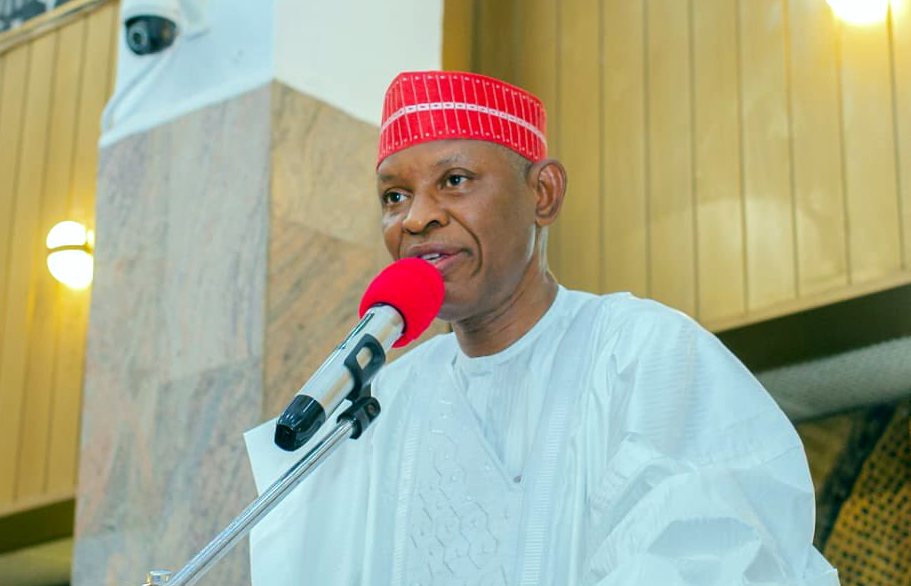Politics
Gov Yusuf laments Ganduje’s 8-year misrule, demands EFCC report on Dollar saga

KANO—GOVERNOR Abba Kabir Yusuf of Kano State, on Sunday, replied his predecessor, Alhaji Abdullahi Ganduje, over his claims of failure in governance in the current administration, insisting that Ganduje’s eight-year tenure represented failure and maladministration, following massive records of corruption, diversion pf public funds and sale of government properties that characterized it.
Recall that the National Chairman of the APC, on Friday, warned the Kano State Governor to concentrate on bringing good governance to his people instead of embarking on a futile attempt to drag his name in the mud.
But Governor Yusuf, in a statement by his spokesperson, Sanusi Bature Dawakin Tofa, regretted that Ganduje shamelessly spoke about non-existent failure in the New Nigeria People’s Party, NNPP, government, instead of facing the crisis hanging around his neck.
Governor Yusuf insisted that Ganduje presided over two unproductive tenures characterised with siphoning public resources, inability to cater for the needs of Kano’s population, nepotism and bloodshed that left many families the mood of melancholy.
He said: “Our eight months in office has remarkably outweighed Ganduje’s eight wasted years of political caricature and maladministration by all standards.”
He advised the APC chairman to rather buckle up in defence at the court, instead of further exposing his impunity on the media space.
He noted that Ganduje could yet muster the courage to defend himself in the media, despite the embarrassing video clip where he was caught, red-handed, stocking his large agbada pockets with dollars, a supposed kickback from a contractor; and other corrupt practices massively associated with his eight-year tenure during which he ran the affairs of Kano State as a family enterprise.
“We wish to reaffirm the present administration’s resolve and readiness to make Ganduje and his co-travellers face the full wrath of the law for thier intentional wrong doings,” the statement added.
Governor Yusuf, however, maintained that his administration is multifacetedly inclined, prioritizing focus and attention on socio-economic and physical infrastructure developments for the overall well-being of Kano and the good people of Kano State.
“Governor Yusuf believes that for anyone to assume that efforts to unravel the issue of corruption charges against Ganduje and members of his immediate family are an attempt to cover up, clearly means, such category of people are either under false illusion or being economical with the truth.
“For whatever option, the Kano State government would advise the acting national chairman of APC to show cause why his name, that of his family, and the entire people of Kano should permanently erase from the global embarrassment that the dollar video has generated.
“The administration of Governor Abba Kabir Yusuf emphasized that it would leave no stone unturned to pursuing the dollar video scandal to logical conclusion. He therefore requested the release of the forensic investigation conducted by the Economic and Financial Crime Commission, EFFC, on the ‘Gandollar saga’, in 2018, for public consumption”, he stated.
On the allegations of poor governance in Kano despite the increase in federal allocation, Governor Yusuf stated that his administration “is still struggling to recover from state of bankruptcy Ganduje plunged the state in the last eight years.”
“We wish to warn Ganduje to stop dragging the name of President Bola Tinubu into his corruption saga, as we believe that our able and well respected President does not interfere into cases before the courts of competent jurisdiction, as we witnessed during our trying times at the Supreme Court when he allowed justice to prevail for the opposition parties,” the statement added.
Source: VANGUARD NEWS











